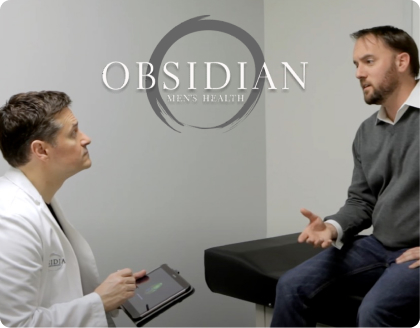Perhaps predictably, the topic of male sexual dysfunction is a hothouse of misinformation, irredeemably goofy folk wisdom and flat-out falsehoods. What are the 10 most common misconceptions about this enormously important area of health care? Let’s lay them out:
1. Sexual dysfunction is only a problem for older men. Not so, overconfident young fella. While incidence of dysfunction increases with age, problems can strike anytime from puberty on. Regardless of how old you are, any problem warrants thorough investigation.
2. Problems need to be treated only when truly severe. Well, define “severe.” If a problem is negatively affecting a couple’s sexual fitness and compatibility in any way, it merits treatment. Even minor difficulties can be effectively addressed; men (and their partners) shouldn’t have to experience grievous problems before seeking help.
3. Erectile dysfunction is the only sexual problem that can be reliably treated. Yes, ED is a fairly common condition, and highly effective palliatives abound (see No. 6 below for more). But plenty of other troubles — low libido and premature ejaculation, to name just two — respond well to treatment, too. Don’t ever assume you can’t be helped.
4. Sexual dysfunction is all mental. Yes, what goes on in the big head does have an effect on the little head. (It’s like they have one of those Cold War red-phone hotlines set up.) But sexual dysfunction is likely to have an underlying medical cause. Psychologically induced sexual problems certainly exist — but in most cases the trouble comes from the body, not the mind.
5. Dysfunction is a result of a man no longer finding his partner sexy. Not typically, no. Relationship factors, quite obviously, can have an impact on sexual function. Yet studies (and plenty of anecdotal evidence as well) have shown that most men with sexual problems still find their partner attractive.
6. Viagra is the only treatment for erectile dysfunction. Oral drugs like the famous little blue pill can be an effective ED treatment for many men, but they don’t work for everyone. Should oral pharmaceuticals fail, rest easy: More aggressive therapies are available.
7. Low testosterone is a normal part of getting older. Yes, testosterone levels fall as a man ages — but testosteronedeficiency (an important distinction) is not normal. Men of all ages require a certain amount of testosterone to maintain normal sexual function; levels below that warrant treatment.
8. Sexual dysfunction cannot be prevented. On the contrary, most such problems can be linked to specific risk factors and behaviors — a poor diet, lack of exercise, alcohol consumption and smoking, to name just the most obvious culprits. Typically, risk mitigation and lifestyle changes can keep sexual dysfunction from appearing in the first place.
9. Treating a man’s sexual problems doesn’t require his partner’s input. Sexual dysfunction is a couple’s problem, and involving the woman in both diagnosis and treatment can improve the result dramatically. (It’s equally important that female sexual dysfunction be recognized and treated as well, of course.)
10. Sexual dysfunction is just something that happens as the years pass. The incidence of sexual difficulties increases with age, but sexual dysfunction itself is never normal. Men and women should expect to have a healthy, vibrant sex life well into their seventies and eighties. Proper precaution, vigilance and treatment can help make it happen.

